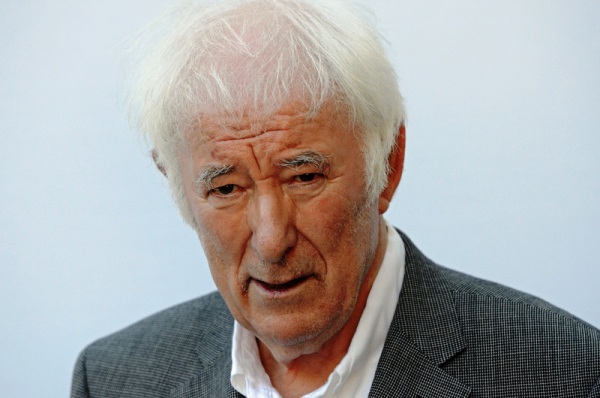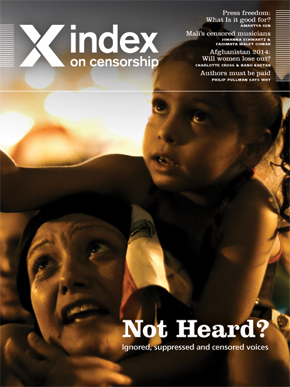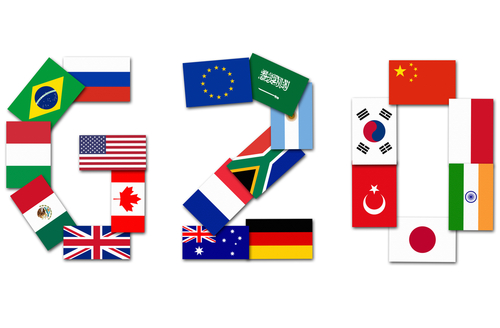Index relies entirely on the support of donors and readers to do its work.
Help us keep amplifying censored voices today.

Brightening brightness, alone on the road, she appears,
Crystalline crystal and sparkle of blue in green eyes,
Sweetness of sweetness in her unembittered young voice
And a high colour dawning behind the pearl of her face.
Ringlets and ringlets, a curl in every tress
Of her fair hair trailing and brushing the dew on the grass;
And a gem from her birthplace far in the high universe
Outglittering glass and gracing the groove of her breasts.
News that was secret she whispered to soothe her aloneness,
News of one due to return and reclaim his true place,
News of the ruin of those who had cast him in darkness,
News that was awesome, too awesome to utter in verse.
My head got lighter and lighter but still I approached her,
Enthralled by her thraldom, helplessly held and bewildered,
Choking and calling Christ’s name: then she fled in a shimmer
To Luachra Fort where only the glamoured can enter.
I hurtled and hurled myself madly following after
Over keshes and marshes and mosses and treacherous moors
And arrived at that stronghold unsure about how I had got there,
That earthwork of earth the orders of magic once reared.
A gang of thick louts were shouting loud insults and jeering
And a curly-haired coven in fits of sniggers and sneers:
Next thing I was taken and cruelly shackled in fetters
As the breasts of the maiden were groped by a thick-witted boor.
I tried then as hard as I could to make her hear truth,
How wrong she was to be linked to that lazarous swine
When the pride of the pure Scottish stock, a prince of the blood,
Was ardent and eager to wed her and make her his bride.
When she heard me, she started to weep, but pride was the cause
Of those tears that came wetting her cheeks and shone in her eyes;
Then she sent me a guard to guide me out of the fortress,
Who’d appeared to me, lone on the road, a brightening brightness.
Calamity, shock, collapse, heartbreak and grief
To think of her sweetnes, her beauty, her mildness, her life
Defiled at the hands of a hornmaster sprung from riff-raff,
And no hope of redress till the lions ride back on the wave.
Aodhgan O’Rathaille, translated by Seamus Heaney
The Glamoured is my translation of Gile na Gile (literally Brightness of Brightness), one of the most famous Irish poems of the early eighteenth century. It is a classic example of a genre know as the aisling (pronounced ashling) which was as characteristic of Irish language poetry in the late seventeenth and eighteenth centuries as rhymed satire was in England at the same time.
The aisling was in effect a mixture of samizdat and allegory, a form which mixed political message with passionate vision. After the devastations and repressions brought about by the armies of Oliver Cromwell and King William, the native Irish population became subject to the Penal Laws, a system of legislation as deliberately conceived as apartheid, enacted against them specifically as Catholics by the Irish parliament (representing the ‘Protestant interest’ which took control after William of Orange’s victory over the forces of the Catholic Stuart king, James II, at the Battle of the Boyne). The native Irish aristocracy fled – and were ever afterwards know as The Wild Geese – and dreams of redress got transferred into poetry.
Politically, the aisling kept alive the hope of a Stuart restoration which would renew the fortunes of the native Irish. Symbolically, this was expressed in the ancient form of a dream encounter in which the poet meets a beautiful woman in some lonely place. This woman is at one and the same time an apparition of the spirit of Ireland and a muse figure who entrances him completely. She inevitably displays signs of grief and tells a story of how she is in thrall to some heretical foreign brute, but the poem usually ends with a promise — which history will not fulfil — of liberation in the form of a Stuart prince coming to her relief from beyond the seas.
Aodhgan O’Rathaille (1675-1729) is one of the last great voices of the native Irish tradition, Dantesque in his anger and hauteur, a voice crying in the more or less literal wilderness of the Gaelic outback, at once the master of outrage and the witness of desolation.
Seamus Heaney, Index on Censorship, September 1998
Index on Censorship calls on the Parliamentary Assembly of the Council of Europe to investigate mass surveillance and protect whistleblowers
To: Members of the Parliamentary Assembly of the Council of Europe
Re: Motion for a resolution – Doc. 13288: Massive eavesdropping in Europe
We, the undersigned representatives of international and national human rights and freedom of expression organizations – ARTICLE 19, Reporters Without Borders, Privacy International, EDRI, Vrijschrift, Open Rights Group, INDEX, English PEN and Access Now – strongly urge the Parliamentary Assembly of the Council of Europe (PACE) to support the Resolution: Massive Eavesdropping in Europe, tabled on 31 July 2013 by 23 members of the PACE.
The resolution calls on member states to regulate and effectively oversee the secret services and special procedures and to pass legislative provisions at the national level to protect whistleblowers. The resolution also calls upon the Secretary General to launch an inquiry under Article 52 of the European Convention on Human Rights.
Our organizations support this timely resolution and remain concerned about recent revelations of surveillance of internet and telephone communications by the governments of the USA and the Council of Europe’s members, including France, Germany, Turkey and the United Kingdom. These revelations suggest a blatant and systematic disregard for human rights as articulated in Articles 8 and 10 of the European Convention on Human Rights and other international and European treaties.
The blanket application of surveillance mechanisms to global digital communications drastically threatens the protection of human rights in the digital age. We remind the PACE members that in his June 2013 report, the UN Special Rapporteur on the promotion and protection of the right to freedom of opinion and expression, Frank La Rue, highlighted the negative impact of surveillance on civil liberties, including the right to inform and be informed, freedom of expression and respect for privacy. We believe that the proposal, formulated in the PACE Resolution, could offer an invaluable assessment of the strength of legal safeguards for right to freedom of expression and privacy in the Council of Europe member states and offer a unique insight into the legal framework of surveillance.
Further, we also support the emphasis of the proposed Resolution on the need to protect whistleblowers. Whistleblowers play a critical role in promoting transparency and upholding the human rights and interests of all members of society. PACE must strengthen this protection of whistleblowers and support efforts to combat violations of fundamental human rights
We therefore call on all PACE members support the motion for the Resolution. In particular, at this stage, we call on the Presidential Committee to start an investigation into the matter and appoint a rapporteur for it.
Signed:
Dr Agnès Callamard, ARTICLE 19
Antoine Héry, Reporters Without Borders
Dr Gus Hosein, Privacy International
Jim Killock, Open Rights Group
Marek Marczynski, INDEX
Jo McNamee, EDRI
Walter van Holst, Vrijschrift
Jo Glanville, English PEN
Brett Solomon, Access Now
 The autumn issue of Index on Censorship magazine brings together articles from writers including Amartya Sen, Philip Pullman, Jonathan Dimbleby and Peter Kellner, and covers India, China, Brazil, South Africa, Honduras, Colombia, Afghanistan and Mali. Under discussion are development and free speech; ignored voices; digital media; reporters under fire in South America. Get your copy of the current issue of Index on Censorship magazine, available now, by subscribing here or downloading the iPad app.
The autumn issue of Index on Censorship magazine brings together articles from writers including Amartya Sen, Philip Pullman, Jonathan Dimbleby and Peter Kellner, and covers India, China, Brazil, South Africa, Honduras, Colombia, Afghanistan and Mali. Under discussion are development and free speech; ignored voices; digital media; reporters under fire in South America. Get your copy of the current issue of Index on Censorship magazine, available now, by subscribing here or downloading the iPad app.
A report from China is one of many which looks at groups of people around the world who are ignored, censored or supressed by their governments, and whose voices are not heard or are ignored:
As millions of people move from the countryside to Chinese cities they end up as “invisible members of society”. The article by Jemimah Steinfeld and Hannah Leung looks at the use of hukou, a household registration document, to control society, but also to keep rural migrants as second class citizens, who have little access to state benefits and education as well as poorly paid jobs. Most are afraid to criticise the system because of their status.
Hukou are registered to the place where they are born, restricting those rights if anyone choosing to move around the country. Shanghai, for instance, now has 10 million residents who have moved from the country, and cannot access the same services as official residents.
Also in the issue:
Nobel Prize winner Amartya Sen writes on democracy, the media and free speech
Reports on violent attacks against journalists in Honduras and Colombia
Free to read now:
• Nic Dawes: Mandela’s legacy “too easily dismissed”
 As global power starts to shift both South and East, and the G20 overshadows the G8, will freedom of speech and broader human rights still receive support around the summit tables?
As global power starts to shift both South and East, and the G20 overshadows the G8, will freedom of speech and broader human rights still receive support around the summit tables?
While the BRICS – Brazil Russia, India, China, and South Africa – range from active democracies to repressive authoritarian states, none are keen to take lectures from western countries on free speech.
And whistleblower Edward Snowden’s still unfolding NSA and GCHQ revelations are surely weakening the US and UK’s credibility in promoting rights internationally. Mass surveillance of digital communications undermines free speech online: monitored conversation is not free, as anyone from Iran or China can attest.
Nor are the democratic BRICS yet taking any international lead on free speech and other rights.
If free speech is to be actively defended in the multipolar order, both the emerging democratic powers and the older western powers must stand up, however imperfectly, for rights, at the UN, the G20 or in bilateral dialogues, and not let economic interest, security priorities, and diplomatic convenience hold sway.
Some European diplomats confidently see the EU, US and Japan as the prime defenders of free speech, while Brazil, India and South Africa are “swing” states to bring on side against China and Russia. But from digital to media freedom to transparency and corruption, the picture is more blurred.
The Snowden revelations risk seriously weakening the US’s credibility in pushing for digital freedom and an open internet against a joint Russia-China quest for top down global internet control. The geopolitics of internet governance were exposed at an international telecommunications summit in Dubai last December – Russia and China pulling almost 90 countries including Brazil and South Africa behind them in a test vote. India wobbled before joining the US, EU and Japan.
But efforts to get democratic BRICs to support an open internet may now falter. ‘Do as we say, not as we do’ is never the most convincing of arguments.
Digital freedom may retreat further if the NSA scandal prompts a more rapid fragmentation of the internet as some fear. While Iran and China already seek to segment their national internets, if the EU and others respond with moves to insulate their networks more from the US then fragmentation may gather speed.
Yet direct censorship of the internet – imposing blocks and filters – is much more common in authoritarian regimes – with China and its great firewall targeting free speech extensively in ways not seen in the multipolar democracies.
But there are some troubling trends. Both the UK and India criminalise ‘grossly offensive’ comment on social media – with arrests for Facebook posts and tweets in both countries . And Brazil and India often top the lists in Google’s regular transparency reports on takedown requests for online content.
On press freedom, the picture for western democracies is fairly positive: they are ahead of the democratic BRICS who are, unsurprisingly ahead of Russia then China. But it’s a varied picture – Germany and the US are substantially ahead of the UK and France, with South Africa coming in just ahead of Japan according to Reporters without Borders press freedom index – and then Brazil and India trail behind. And such indicators cannot reflect the granular reality of Obama’s prosecution of media sources, or the UK debate on statutory press regulation.
At the international level, western countries are often seen as readier to challenge individual countries’ human rights records, than India, Brazil and South Africa. Yet Brazil and India voted with the US criticising Sri Lanka’s record earlier this year while Japan abstained. And the EU and US can hesitate too in the face of economic interests not least in dealings with China.
Transparency and corruption is where western countries do best. The US, Japan, Germany, France and the UK all score fairly high up on Transparency International’s annual ranking, while Brazil and South Africa languish in the middle, India is behind China, and Russia scores even below China (and India) too. But the US and UK’s transparency record will surely be reassessed given Snowden’s leaks.
With this mixed record of the democratic powers, will we hear less about free speech and human rights in the multipolar, digital world? At least, with whatever flaws and double standards, the majority of the G20 are democracies with robust debates on free speech at home. But the revelations of mass digital surveillance now cast a long shadow.
Perhaps one more positive outcome of the US’s stumbling over mass surveillance will be if it gives India, Brazil and South Africa the confidence to speak out strongly on the international stage including holding western players more to account on free speech. If so the multipolar democracies would then have more, not less, credibility in pointing the finger at authoritarian regimes.
Read more about the multipolar challenge to free expression in the current issue of Index on Censorship magazine